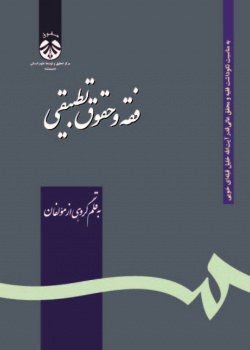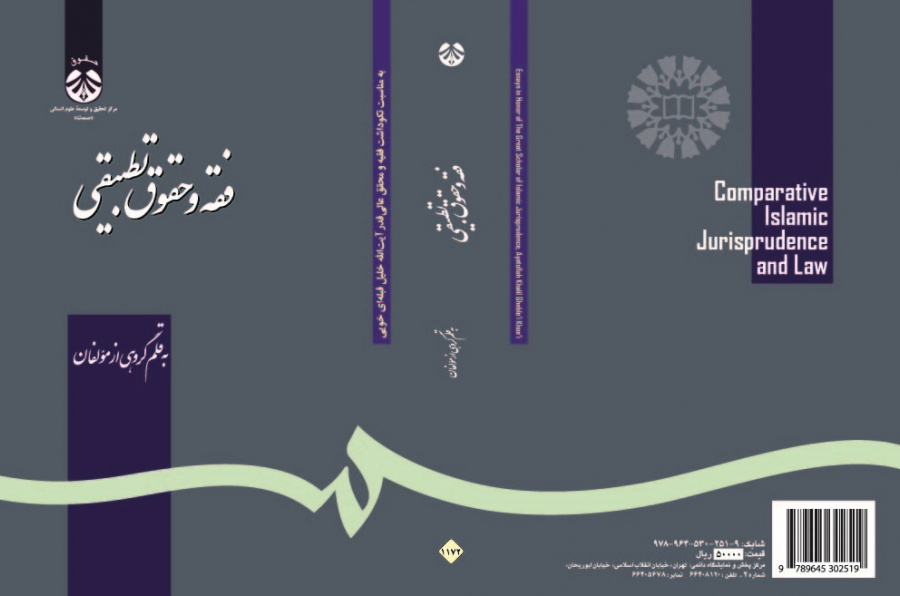

Comparative Islamic Jurisprudence and Law
In line with its research and academic obligation, SAMT organization feels committed to praise and revere the brilliant professors. Accordingly, it intends to express its acknowledgment to the highly respectful professor and researcher Ayatollah Khalil Qeble'ie Khouie. The present book is the scientific outcome of thoughts and scientific work carried out by researchers in law and related subjects, which is published to honor Professor Ayatollah Khalil Qeble'ie Khouie.
The book is consisted of 33 articles as follows:
Human rights and the necessity to revere the sacred; woman's guardianship in Quran and traditions; study of essence and terms of contracts and the related effects; drug abuse in jurisprudential viewpoint; Islamic teachings and medical trainings; legal status of step-children in Iran; the necessity to elucidate criminal law; the effect of witness-reliance in judicial decision; testimony and related issues; the documentaries used by the judge in Shia and Sunni jurisprudence; jurisprudential contrivances in practical challenges in vindication of retaliating a male Muslim; the necessity to modify the shortcomings causing marriage annulment; discussing swearing and cursing in jurisprudence and ethics; the jurisprudential-legal review of compensating possible losses; sale contract; jurisprudential tact in indefinite contracts and enacting law in definite contracts; mistake in judgment and difference of opinion in inference; human simulation in Islamic jurisprudence; the validity of the principle of not making retroactive in criminal law in Islam and Iran's law; general property ownership; the philosophical and discourse basic facts of jurisprudential innovations; Mahayat (sharing the credits of key-money and commercial and occupational rights based on time and place); the way the heritage is shared among heirs mentioned in the Holy Quran and for those like them; spiritual rights as: compiling rights, literal rights, artistic rights, etc; the reference knowledge for judgment in the Shia Imams' jurisprudence and in Iran's criminal law; conditional marriage; the specific penal policy of Islam to battle social corruptions and its comparison with jurisprudential subjects; the principle of legality of crime and punishment and its difference with the acquittal principle; reviewing the wisely principle of "a damage made to an object on sale before receiving it" and article 387 of civil law; an investigation in the judgment method of the Prophet until 40 after Hejira in lunar calendar; directly and indirectly committing crimes; the stipulation of capability to fulfill a commitment in jurisprudence and civil law; improving the oncepts of affirmation and acceptance; judicial verdicts and the judge knowledge; a roundtable on the necessities of jurisprudence and law.





